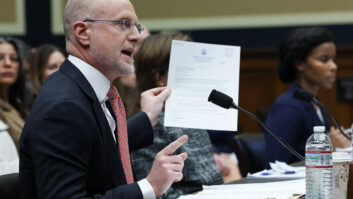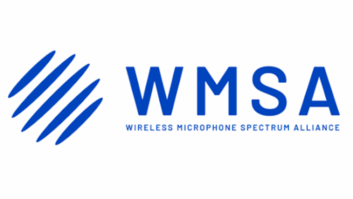 The Consumer Technology Association is knocking a proposal from the National Association of Broadcasters asking the FCC to impose new regulatory fees on unlicensed spectrum users. CTA argues the NAB proposal is contrary to current law, would stifle innovation and have a sweeping impact on the consumer technology market.
The Consumer Technology Association is knocking a proposal from the National Association of Broadcasters asking the FCC to impose new regulatory fees on unlicensed spectrum users. CTA argues the NAB proposal is contrary to current law, would stifle innovation and have a sweeping impact on the consumer technology market.
NAB has been aggressively pushing for an update to the regulatory fee categories so that unlicensed spectrum users, especially large tech companies, pay an annual regulatory fee similar to those already paid by broadcasters. CTA says the fees would defy precedent and hurt consumers, app developers, device makers and small businesses that rely on unlicensed spectrum.
The FCC this fall scrapped a plan to hike this year’s radio regulatory fees and instead set those fees equal to those collected in 2020. The FCC’s original proposal would have raised radio’s annual regulatory fees on average of 8% this year. NAB and all 50 state broadcast associations balked at the proposed rate hike.
[Read: Rosenworcel Calls for 6G Initiative]
As part of the FCC’s Report and Order setting the 2021 regulatory fees for broadcasters in August, the commission released a companion Notice of Proposed Rulemaking. The NPRM asked for comment on adopting new regulatory fee categories and the legal basis for assessing regulatory fees on unlicensed spectrum users.
CTA says it believes the NAB proposal is contrary to commission precedent. “It also would raise serious administrability concerns, be impossible to implement in a nonarbitrary manner, and have significant implications for regulatory fees in contexts beyond unlicensed spectrum,” the CTA wrote in comments filed this week with the FCC. “Further, NAB’s proposal would undermine the enormous innovation made possible by the commission’s long-running and successful approach to unlicensed spectrum.”
The group, which represents a wide variety of consumer technology companies and is led by CEO Gary Shapiro, says NAB’s proposal overlooks that companies using unlicensed spectrum already defray commission costs in important ways.
Identifying those unlicensed spectrum users and determining the regulatory fees they should pay would be difficult, according to CTA. “Unlicensed spectrum users include consumers, state and local governments, corporations, nonprofit organizations, schools, libraries, and many more groups. Those unlicensed spectrum users do not impose discrete and well-understood duties on the Commission as licensees and other regulated parties do.”
CTA continues: “Potential beneficiaries of unlicensed spectrum subject to NAB’s proposed regulatory fees share little in common other than their use of unlicensed spectrum.”
In addition, unlicensed spectrum users receive no rights or protections from the FCC, CTA commented. “Wireless spectrum licensees receive exclusive rights to particular spectrum frequencies, which they monetize by offering services using that exclusive spectrum.”
Because of the differences between entities currently subject to regulatory fees and unlicensed users, NAB’s proposal raises a host of administrability concerns, CTA concludes in its comments.
Acting FCC Chair Jessica Rosenworcel specifically asked at the time of the NPRM “how if changes were made, can they be done in an administrative way?”
Reply comments on the NPRM (MD Docket No. 21-190) are due Nov. 5.
Here is a snippet of the questions being asked by the FCC:
- What would be the proposed methodology for assessing regulatory fees on unlicensed spectrum users, noting that unlicensed spectrum users include a significant number of equipment manufacturers, such as appliance and other home goods equipment, many of which neither apply for nor require authorization by the commission?
- Alternatively, should the commission assess regulatory fees on large technology companies based on a different basis, such as any advantages they receive because of the commission’s universal service or other activities?
- Are there other categories that should be added, deleted, or reclassified?







